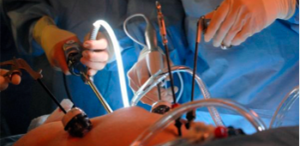
Each patient who comes to our Tijuana, MX practice is different, which is why there aredifferent types of bariatric surgery procedures to promote healthy weight loss. Dr. Liza Maria Pompa Gonzalez has drawn patients from San Diego, CA and throughout Southern California thanks to her success with bariatric surgery.
Life after bariatric surgery can be a challenge, but it’s one worth taking. Some patients, for instance, struggle with overeating after their surgery has been performed. We at LIMARP® would like to consider why overeating should be avoided, and offer some advice on how to prevent it.
Why Overeating Should Be Avoided
There are a few important reasons why bariatric surgery patients should avoid overeating.
- Dumping Syndrome – When food moves from the stomach to the small bowel too rapidly, this is known as dumping syndrome. It can be extremely uncomfortable, and lead to nausea, diarrhea, and other problems.
- Indigestion – Even if you don’t experience dumping syndrome, eating too much can result in simple indigestion.
- Weight Regain – Over time, overeating can have a negative impact on the overall results of bariatric surgery. The stomach may become stretched, leading to substantial weight gain even after surgery.
Thankfully there are several things that you can do at home to help prevent overeating.
Eat Your Food Slowly
It can take a little time before your brain registers that your stomach is full. That’s why it’s so important to savor your food. Eat meals slowly, and chew your food thoroughly. This helps prevent overeating as well as dumping syndrome.
Portion Control Matters
Stick with small portions at meals rather than large portions. If you have a big, full plate, you may feel inclined to finish everything even though you really shouldn’t.
Consider Smaller Plates
On the note of full plates, you can trick yourself out of overeating by using smaller plates during meals. You’ll be able to clear off an entire plate on your own, but will be eating less than usual since the plate is smaller.
Pack Up Your Leftovers
If you have food leftover, don’t be ashamed about saving it for later. There’s a reason we keep leftovers and why plastic containers and bags are so plentiful.
Small Meals Several Times a Day
With bariatric surgery, you’ll be eating small meals several times a day rather than a few big meals. Remember this as you move forward with your diet. It also gives you a chance to finish some of those leftovers.
Drink Water Between Meals
Hydration is just as important for your well-being and good nutrition. Drink water between meals to stay hydrated and to keep yourself feeling full. This can prevent problems with overeating through the day.
Notice How Your Body Responds to Foods
Your relationship to food changes a lot after bariatric surgery, so it’s important that you reconsider your relationship to food. See how certain types of foods affect your stomach, and adjust yourself accordingly to your body’s needs.
Speak with a Therapist or Counselor
If you were a binge eater prior to bariatric surgery, the changes your body is going through can take a toll on you mentally/psychologically. Reach out to your friends and family for emotional support on your journey, and consider speaking to a therapist about your struggles. They can offer insight and additional advice on how to deal with food, health, and wellness matters.
Learn More About Life After Bariatric Surgery
To learn more about bariatric surgery and how it can benefit you and your needs, be sure to contact an experienced weight loss surgery specialist. You can reach LIMARP® by phone toll free at (866) 279-8330.


